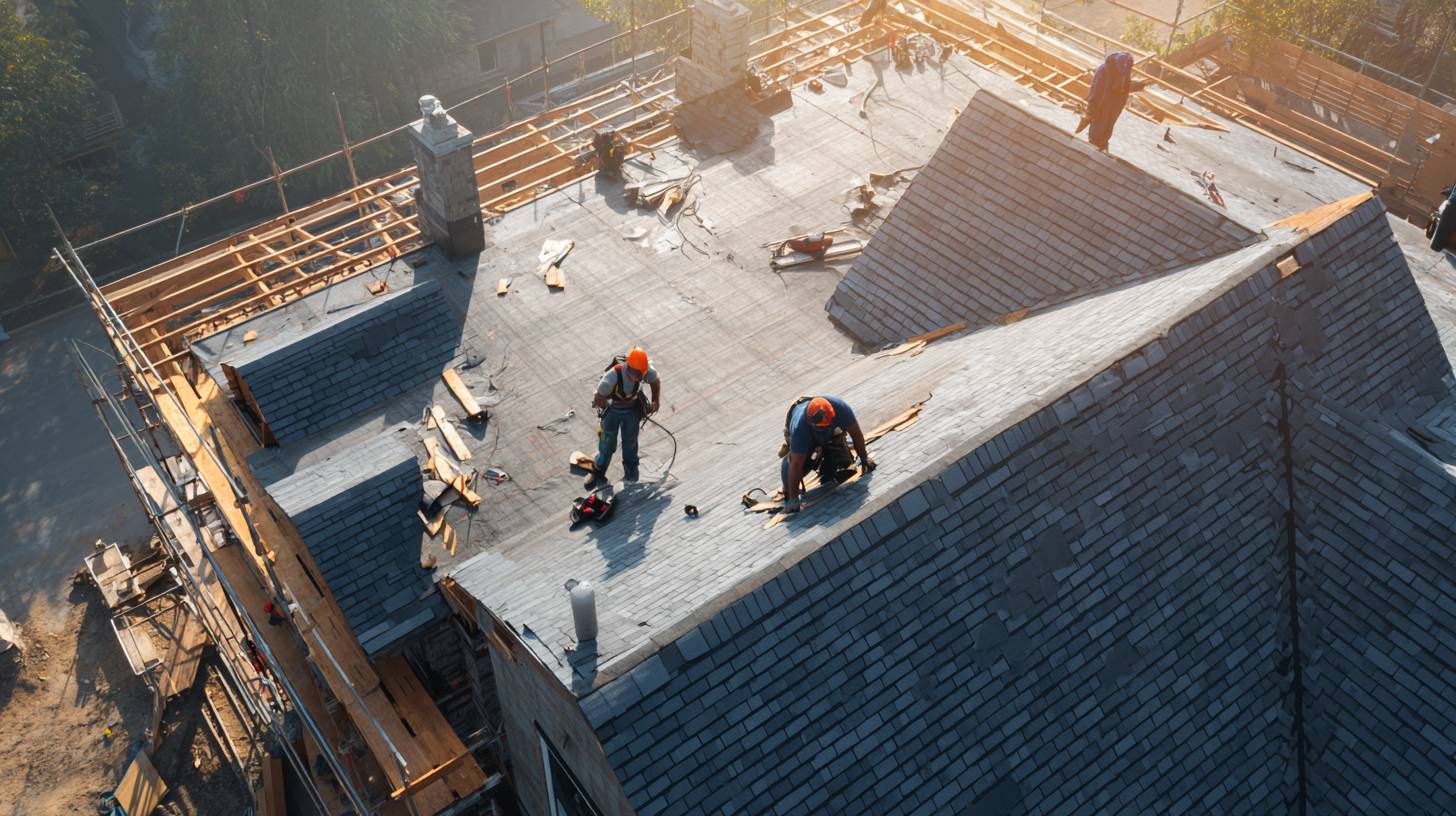Table of Contents [hide]
When you need a roof replacement or roof repair, the hardest part is not choosing shingles. It’s finding the right roofing contractor. With hundreds of roofing companies across North America, it can be difficult to know who follows industry standards and who cuts corners.
This guide walks you through the process of contractor selection step by step. From checking certifications and industry training to reviewing warranties and customer reviews, you will learn how to hire a professional who delivers high-quality roofing systems and lasting peace of mind.
Step 1: Confirm Licensing, Insurance, and Safety
Ask for a copy of the contractor’s state or local license, commercial general liability insurance, and workers’ compensation. Verify the license number against your state’s database. Also, confirm that contractors follow safety protocols for ladders, fall protection, and site cleanup.
Step 2: Check Manufacturer Certifications
Certified roofers are trained to install products according to manufacturer standards, which often unlocks better warranty coverage. Look for listings in contractor directories from shingle manufacturers or metal suppliers, such as IKO ROOFPRO, Malarkey Certified Contractors, Atlas Roofing’s Pro+ programs, or similar networks. These certifications typically provide access to stronger manufacturer warranties and full roofing system coverage.
Step 3: Choose Roofing Materials and Project Scope
Next, decide whether your project requires roof repair or a complete roof replacement. Once you know the scope, choose materials that fit your climate, budget, and HOA requirements. The right roofing system can improve durability, energy performance, and long-term value. Here are some of your roofing options:
Asphalt Shingles
Still the most common choice for residential roofing, asphalt shingles are affordable, familiar, and available in a wide color range. Impact-rated options with Class 4 resistance offer better protection against storm damage.
Metal Roofing
Metal roofing products are designed for longevity, energy efficiency, and severe weather performance. Whether standing seam panels or metal shingles, these systems often last 40 to 70 years with proper maintenance.
Flat Roofs
For flat roofs and commercial properties, systems like TPO, PVC, or rubber roofing create waterproof barriers that resist leaks and reduce cooling loads. These options are especially common for building owners managing larger facilities.
Step 4: Compare Roofing Warranties the Right Way
Not all warranties are the same. A strong roofing investment requires understanding how each type of coverage works and what it means for your project.
Manufacturer Warranty
A manufacturer's warranty protects the product itself, such as asphalt shingles, metal panels, or roofing membranes. Always ask what conditions might void coverage and whether special options like a cool roof installation could change the terms.
Workmanship Warranty
A workmanship warranty covers errors made during installation. This is where contractor accountability matters most. Get the length of coverage in writing, and confirm whether it includes repair services or emergency roof repairs after severe weather.
System Warranty
A system warranty connects approved components from the same manufacturer into a single package. This unified approach simplifies insurance claims, ensures compatibility across the roof system, and often extends coverage for roof replacement or upgrades such as flashing, sealing, and attic ventilation.

Step 5: Get Local Roofing Quotes You Can Compare
Request at least three local quotes using the same scope, materials, and disposal plan. Include line items for tear-off, underlayment, flashing, ventilation, and any gutter repair or skylight work. For a typical roof replacement cost, U.S. averages range from $6 to $35 per sq. ft., though final costs depend on roof size, pitch, and material.
TIP: To get the most accurate estimate, use your postal code when requesting quotes so pricing reflects local labor rates and weather needs.
Step 6: Review Roofing Proposals Like a Pro
Before signing a contract, take time to review your proposal carefully. A professional roofing contractor should outline every detail so you know exactly what to expect during your roof installation or roof replacement.
Scope of Work
A complete proposal lists the entire roofing system and accessory parts, not just the visible shingles. This should include underlayment, ventilation, flashing, and any upgrades for long-term protection.
Specified Materials and Methods
Look for clear details about brand lines and installation methods, whether the project involves metal roofing, shingle roofing, or commercial roofing systems. Vague descriptions are a red flag.
Permits, Schedule, and Payment
Reliable contractors explain who will handle permits, how the job site will be protected, and what the project schedule looks like. Payment timing should also be spelled out clearly.
Insurance and Claims Support
If your project involves storm damage or an insurance claim, the proposal should clarify how deductible handling, documentation, and claim assistance will be managed.
Completion and Maintenance
Good proposals go beyond installation. Terms should explain how punch-list items will be resolved and what kind of roof maintenance or repair services are available after the project is complete.
Step 7: Verify Reputation and Experience
Check a contractor’s Better Business Bureau (BBB) accreditation and review how complaints were resolved. Read recent customer reviews and testimonials, and ask for references when possible. Browse their website for a project gallery with photos of roofs similar to yours. Favor companies with proven experience across different materials and roof styles, backed by clear workmanship warranties and reliable post-installation service.
FAQs About Hiring a Roofing Contractor
How do I choose between asphalt shingles and metal roofing?
Asphalt shingles offer a lower upfront cost and broad styles. Metal roofing lasts longer, sheds weather better, and can improve efficiency. Your climate, HOA rules, and budget decide the winner.
Will a manufacturer's certification really affect my warranty?
Yes. Many systems and extended warranties require installation by a listed, certified contractor program partner. Without it, you may only receive basic coverage.
Can a contractor help with storm damage claims?
A quality contractor will photograph damage, write a scope that matches carrier guidelines, and coordinate with your adjuster. Clarify how they handle paperwork for insurance claims and who meets the adjuster on site.
What should building owners ask for on flat roofs?
Request a moisture survey, insulation values, membrane type, and details on seams, flashing, and drainage. Confirm maintenance schedules and approved cleaners, and confirm that maintenance follows Chemical Fabrics and Film Association (CFFA) guidance to ensure long-term membrane performance.
Do I need maintenance after a new roof?
Yes. Annual checkups catch lifted shingles, clogged vents, or sealant wear early. Many warranties require documented maintenance to stay valid.
Let Mr. Remodel Match You With a Trusted Pro
Finding a roofing contractor should be straightforward. Mr. Remodel makes it easy by connecting you with licensed, pre-screened roofing professionals who meet high standards for training, professionalism, and warranty support.
You’ll receive real-time matches with local experts and free, no-obligation quotes you can compare side by side. Whether your project involves roof repair, a full roof replacement, or even commercial roofing systems, we’ll pair you with contractors who deliver quality materials, clear communication, and long-term protection for your home or business. Submit your roofing project today.





